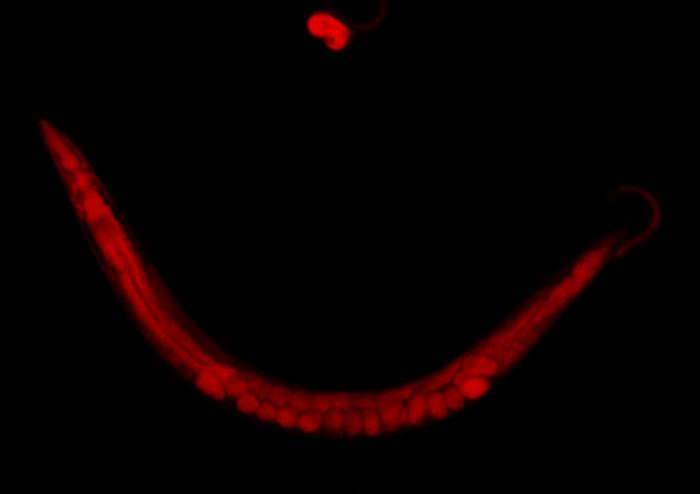In a world where the intricacies of molecular biology often seem as vast and mysterious as the cosmos, a new groundbreaking study delves into the microscopic universe of proteins, unveiling a fascinating aspect of their existence. This revelation could hold profound implications for the understanding and treatment of a myriad of human diseases.

Credit: Schroeder Lab/Boyce Thompson Institute
In a world where the intricacies of molecular biology often seem as vast and mysterious as the cosmos, a new groundbreaking study delves into the microscopic universe of proteins, unveiling a fascinating aspect of their existence. This revelation could hold profound implications for the understanding and treatment of a myriad of human diseases.
Imagine proteins as tiny engines driving the machinery of life. Just as engines require modifications to optimize performance, proteins undergo ‘protein modification’ – a crucial process altering their function, location, and lifespan. A key player in this modification process is protein fatty acid attachment (‘protein fatty acylation’), akin to adding a specialized component (i.e., fatty acids) that allows proteins to anchor themselves to cellular membranes.
Through meticulous investigation using high-resolution mass spectrometry, scientists from the Boyce Thompson Institute (BTI) discovered critical patterns of fatty acid attachment in the model organism C. elegans, a microscopic worm that offers a window into fundamental biological processes.
The researchers, harnessing the power of ‘click chemistry’ – a technique celebrated with two Nobel Prizes in Chemistry – successfully mapped how different amino acids in proteins are specifically modified with various fatty acids.
“We were surprised to discover that different amino acids are modified with fatty acids from distinct biosynthetic pathways,” shared Frank Schroeder, a professor at BTI and senior author of the study. “This unexpected finding highlights the link between protein modification and specific fat metabolic pathways. It also serves as a foundation for further research into how protein function is affected by different fatty acids and their metabolism.”
The study entitled “Amino acid and protein specificity of protein fatty acylation in C. elegans,” just published in PNAS, is not just about understanding the inner workings of a tiny worm. The implications are vast and deeply relevant to human health. Protein fatty acid attachment is a critical factor in diseases ranging from cancer to neurodegeneration, cardiovascular disorders, and even infectious diseases.
“What we learn from C. elegans contributes significantly to our fundamental understanding of this type of protein modification,” said Bingsen Zhang, a graduate student in the Schroeder lab and first author of the study. “The more we understand protein modification and function, the better we understand its central role for human health and disease.”
Moreover, the study reveals the first example of abundant protein modification with branched-chain fatty acids – a finding that might have parallels in higher animals and humans, given their presence in our diet and production by gut microbiomes. The connection between diet, gut health, and protein modification could open new avenues in nutritional science.
Ultimately, this study is about the fundamental processes that keep every creature alive, from microscopic worms to humans. So next time you see a worm, give a nod to the unlikely hero of biology and the scientists who are uncovering its secrets. Because sometimes, the key to life’s biggest mysteries lies in its tiniest inhabitants.
The research was supported in part by the NIH and NSF.
About Boyce Thompson Institute
Founded in 1924, the Boyce Thompson Institute (BTI) is a premier plant biology and life sciences research institution located in Ithaca, New York. BTI scientists conduct investigations into fundamental research with the goals of increasing food security, improving environmental sustainability, and making basic discoveries that will enhance human health. Throughout this work, BTI is committed to inspiring and educating students and providing advanced training for the next generation of scientists. BTI is an independent nonprofit research institute that is affiliated with Cornell University. For more information, please visit BTIscience.org.
Journal
Proceedings of the National Academy of Sciences
DOI
10.1073/pnas.2307515121
Method of Research
Experimental study
Subject of Research
Cells
Article Title
Amino acid and protein specificity of protein fatty acylation in C. elegans
Article Publication Date
22-Jan-2024
COI Statement
H.L. is a founder of, consultant, and a stockholder for Sedec Therapeutics. F.C.S. is a founder of, consultant, and a stockholder for Ascribe Bioscience and Holoclara Inc.




